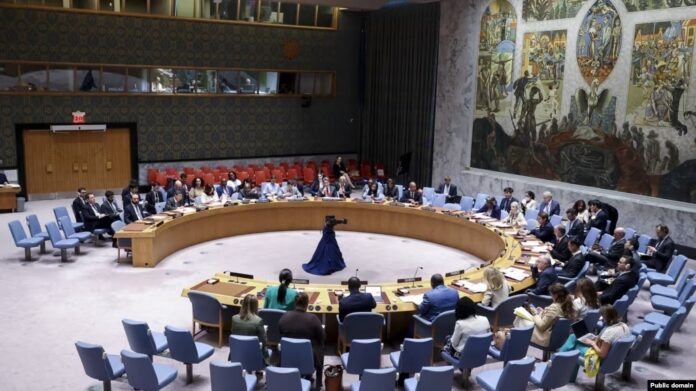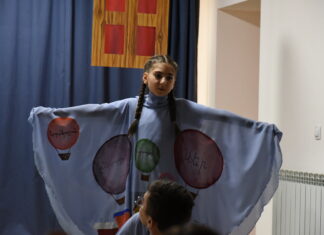NEW YORK (Combined Sources) — The Armenian government downplayed on August 21 the United Nations Security Council’s failure to formally demand an end to Azerbaijan’s blockade of Nagorno-Karabakh as a result of an emergency meeting held last week.
Armenia had initiated the session on August 16 in a bid to drum up stronger international pressure on Baku. Foreign Minister Ararat Mirzoyan attended the session and addressed it, saying that Yerevan expects the Security Council to condemn Baku, demand the immediate reopening of the Lachin corridor, send a fact-finding mission to Karabakh and provide humanitarian aid to the region’s struggling population.
Although most of its members, notably the United States and Russia, urged the lifting of the Azerbaijani blockade, the Council stopped short of adopting a relevant resolution or statement. This fact led some in Armenia to question the wisdom of initiating the meeting and sending Mirzoyan to New York.
The Armenian Foreign Ministry countered that the format of the meeting did not “presuppose the adoption” of any such document.
Ararat Mirzoyan, Minister for Foreign Affairs of Armenia, said that according to the trilateral statement, the Lachin Corridor shall remain under the control of the Russian Federation peacemaking forces. Yet in 2022, Azerbaijan blocked the Corridor under a fake pretext of environmental concerns. As a result, the people of Nagorno-Karabakh no longer receive 400 tons of essential goods daily. Condemning the use of starvation of civilians as a method of warfare and warning against the “ethnic cleansing of the people of Nagorno-Karabakh,” he called for the immediate restoration of freedom of movement of persons, vehicles and cargo through the Corridor.
Rejecting such “groundless” allegations, Azerbaijan’s representative said Armenia is presenting as a humanitarian matter a provocative political campaign to undermine his country’s sovereignty and territorial integrity. Moreover, the recent decision by the International Court of Justice to reject Armenia’s request for an interim measure of the checkpoint’s removal dismissed that country’s allegations that the Lachin checkpoint is illegal. Immediately after the end of the war in 2020, Azerbaijan offered logistics and infrastructure to ICRC for the delivery of goods to the Karabakh region of Azerbaijan. However, the Armenian side rejected and prevented the ICRC from delivering humanitarian assistance, he recalled.








